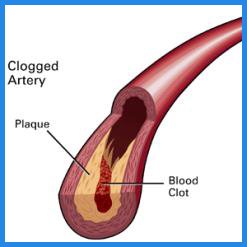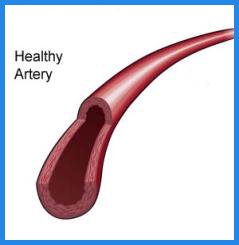What is a heart attack?
A heart attack occurs when there is a severe blockage in an artery that carries oxygen-rich blood to the heart muscle. The blockage is usually caused by a blood clot that lodges in an artery that is already narrowed by the buildup of plaque (deposits of fat-like substances) along the wall of the artery. The sudden lack of blood flow to the heart muscle deprives the heart of oxygen and nutrients. If the blockage is not opened quickly, the heart muscle will suffer serious, permanent damage as areas of tissue die.


The medical term for a heart attack is acute myocardial infarction. Acute means sudden, myo refers to muscle, and cardia refers to the heart. The myocardium is the medical name for heart muscle. Infarct means that heart tissue has been destroyed or killed because it was deprived of oxygen for too long.
Sometimes a heart attack is caused by a coronary spasm a coronary artery pinches itself off, restricting blood flow to the heart. This can happen in a normal artery but usually occurs in one that is already narrowed by the buildup of plaque along the artery wall. Women younger than 50 years of age who have a heart attack are more likely to have had a coronary spasm than men of this age or older men and women.
What is a silent heart attack?
A heart attack may occur without chest pain or any other symptoms; in this case, it is called a silent heart attack. It may be discovered days, weeks, or even months later during electrocardiogram (ECG) testing. This kind of heart attack occurs more often in women than in men.1, 2 People who have a silent heart attack tend to be about 7 years older than those who have more typical heart attacks (74 vs. 67 years) and more often have diabetes or heart failure. It’s likely that people with diabetes are at a higher risk for silent heart attacks because diabetes interferes with pain perception and may make you less likely to notice heart attack symptoms.



